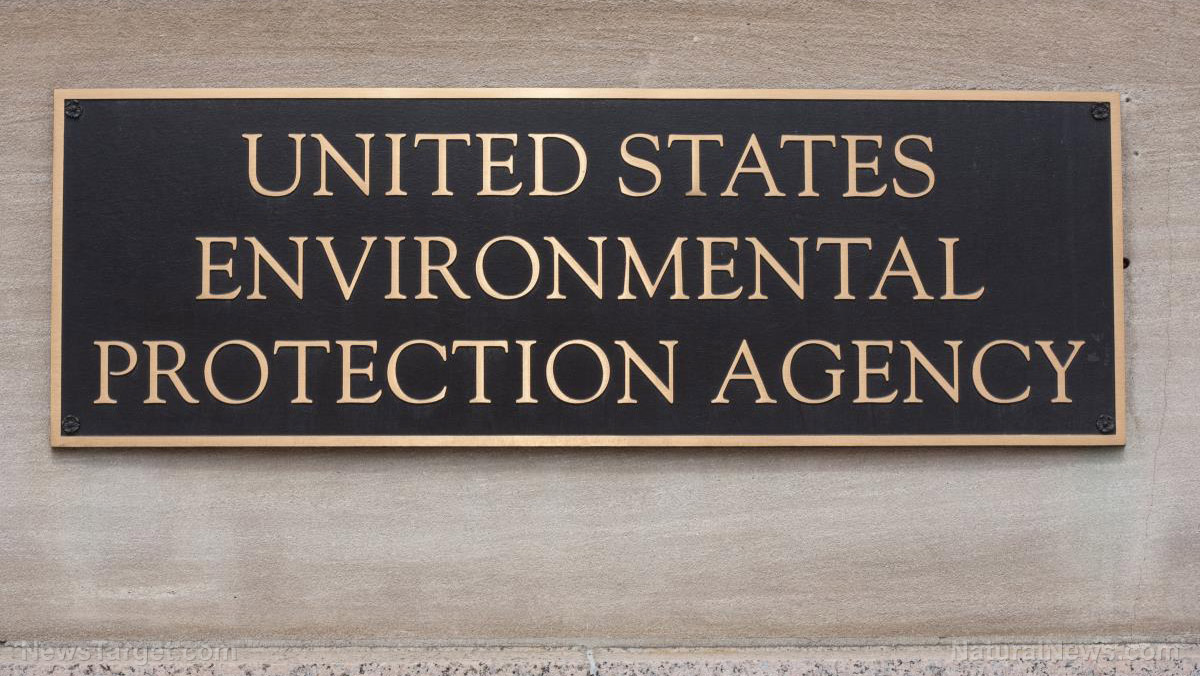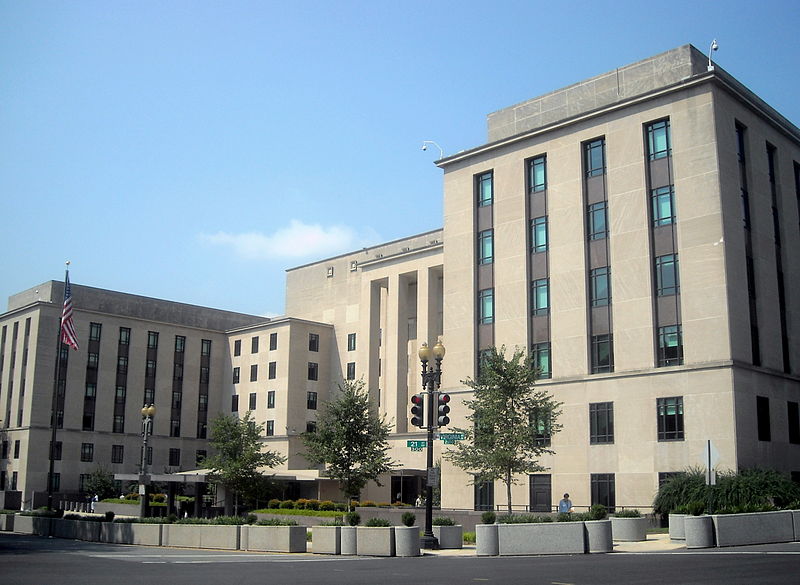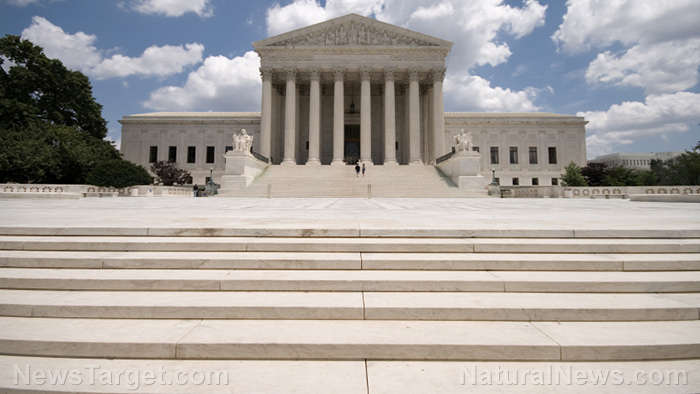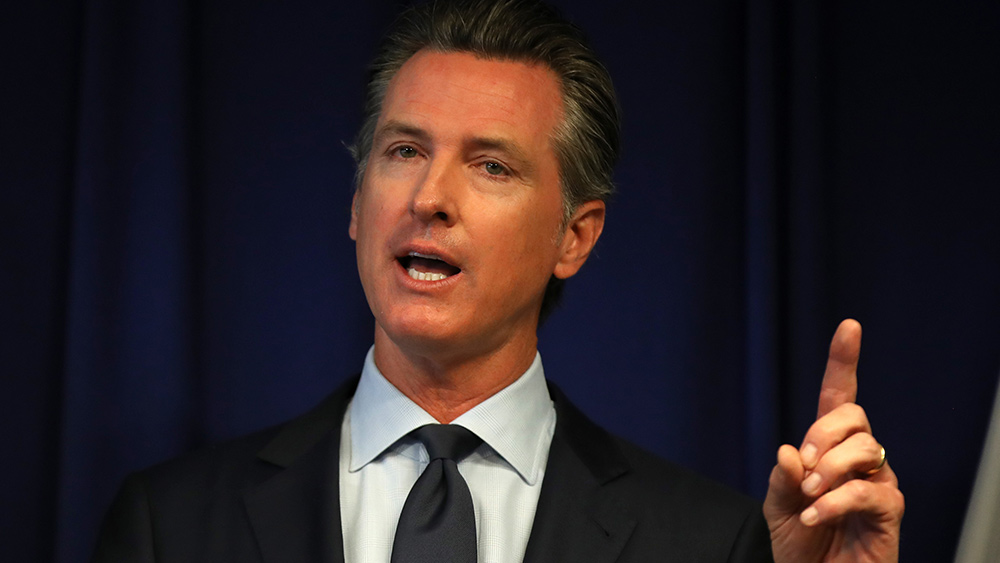U.K. Supreme Court upholds biological sex definition in landmark equality ruling
04/17/2025 / By Willow Tohi
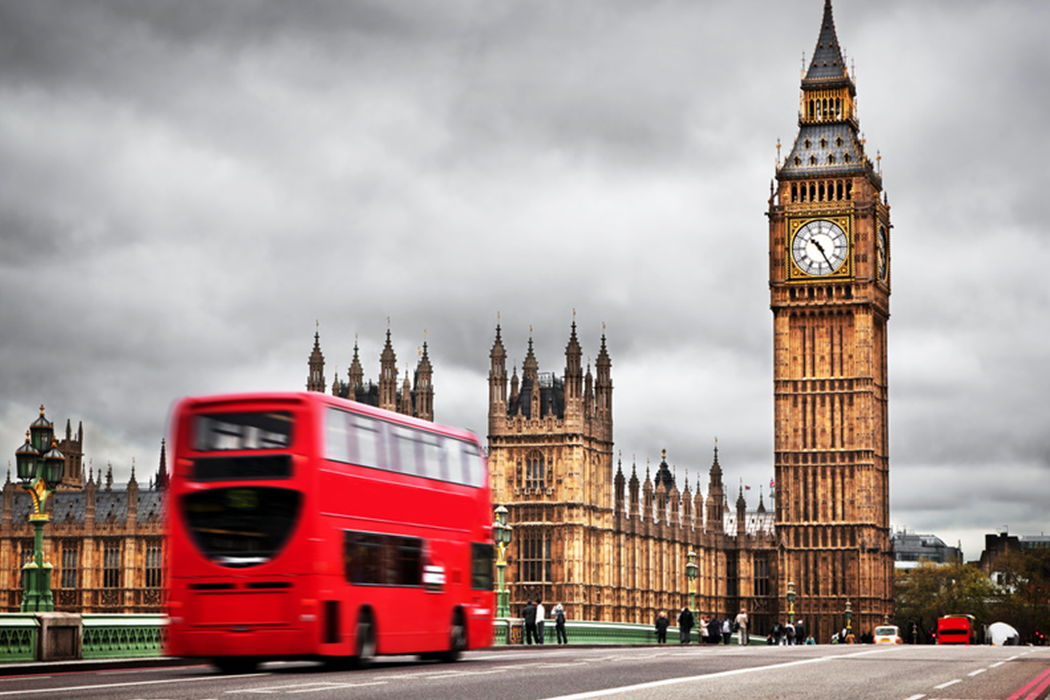
- The U.K. Supreme Court ruled unanimously (5-0) that the terms “sex” and “woman” in the Equality Act 2010 refer to biological sex—not gender identity—ensuring consistency in laws related to pregnancy, maternity and sex-based protections.
- Transgender women (with or without a Gender Recognition Certificate) cannot be included under sex-based protections for biological women under the Equality Act. While trans people retain protections against gender reassignment discrimination, the ruling allows single-sex services to exclude them if “proportionate.”
- Supporters (e.g., For Women Scotland, J.K. Rowling) hailed it as a win for biological women’s rights, while critics (e.g., Stonewall, Scottish Greens) warned of dangerous exclusion, fearing reduced protections for trans people in gendered spaces.
- The case originated from Scotland’s 2018 Gender Representation on Public Boards Act, which aimed to increase women’s public roles. The ruling overturns a 2022 Scottish court decision that included trans women in the definition. The decision follows rising anti-trans sentiment globally and a 112% spike in U.K. trans hate crimes in 2023.
- The ruling may influence debates on single-sex spaces, sports and workplaces, while policymakers face pressure to update laws balancing trans rights and sex-based protections. Legal experts caution that changes will be gradual, requiring case-by-case assessments of “proportionality.”
In a decision with sweeping implications for equality laws, the United Kingdom’s highest court ruled Wednesday that the term “woman” in the Equality Act 2010 refers to biological sex, not gender identity, triggering a mix of celebration and alarm along the fault lines of the transgender rights debate.
Key legal ruling and its scope
The U.K. Supreme Court, in a unanimous 5-0 judgment, concluded that interpretations of the Equality Act 2010—Britain’s foundational anti-discrimination law—must anchor the terms “sex” and “woman” to biological sex rather than gender legally recognized via a Gender Recognition Certificate (GRC). The case involved a challenge by the campaign group For Women Scotland against the Scottish Government’s 2018 Gender Representation on Public Boards Act, which sought to boost women’s participation in public sector leadership roles. For Women Scotland argued that including transgender women (those assigned male at birth but legally recognized as female) in the law’s quotas violated biological sex protections under U.K. equality laws.
The court agreed, stating that interpreting “sex” as including acquired gender would create inconsistencies in provisions tied to pregnancy, maternity and other sex-based criteria. “The terms ‘women’ and ‘sex’ in the Equality Act 2010 refer to a biological woman and biological sex,” Lord Patrick Hodge, a justice, explained. This interpretation applies across England, Scotland and Wales, though Northern Ireland’s equality oversight rests with its own commission.
The ruling allows single-sex services like hospitals, shelters and sports facilities to exclude transgender individuals if doing so is deemed “proportionate.” However, the court emphasized that transgender people remain protected under other parts of the 2010 law, including those covering discrimination based on gender reassignment. “Trans people have rights, but they are not entitled to the same sex-based protections as biological women,” said a U.K. government spokesperson.
Celebration and backlash reflect polarized reactions
For Women Scotland and gender-critical advocates hailed the ruling as a victory for biological sex protections. The group’s co-founder, Susan Smith, called it a vindication of “common sense,” stating outside the court, “Today the judges have said what we always believed: Women are protected by their biological sex.”
Prominent author J.K. Rowling, a vocal For Women Scotland backer, praised the decision on social media, calling it a triumph for the “rights of women and girls.” The ruling also drew support from some political leaders, including Conservative MP Kemi Badenoch, who called it “a victory for all women who have faced abuse for stating the obvious.”
Conversely, LGBTQ+ advocates warned of dire consequences for transgender communities. Stonewall, the U.K.’s largest LGBTQ+ rights charity, expressed “deep concern,” stating the decision could “strip trans people of vital protections.” Scottish Greens MSP Maggie Chapman termed the ruling “deeply concerning for human rights,” fearing marginalized trans individuals would face added exclusion. Scottish Trans mainland director Vic Valentine called the decision confusing, saying it risks leaving trans people “excluded from both men’s and women’s spaces.”
Historical context: A decade of debate and rising tensions
The case stems from a 2018 legal battle when Scotland’s parliament passed the Gender Representation on Public Boards Act, requiring at least 50% representation of women by 2022. For Women Scotland sued, arguing that including transgender women undermined protections for biological females. The group’s challenge reached the U.K. Supreme Court after Scotland’s highest court ruled in 2022 that “woman” was not confined to biological sex.
This latest ruling heightens tensions in a debate fueled globally by rising anti-trans rhetoric, including U.S. state laws banning transgender youth from sports and healthcare. In the U.K. itself, 2023 saw a 112% surge in recorded transgender hate crimes, including the high-profile murder of 14-year-old Brianna Ghey, whose transgender identity was central to national media scrutiny.
The Supreme Court’s decision also underscores Britain’s legislative lag. While the Equality and Human Rights Commission’s (EHRC) April 2024 guidelines affirmed the right to restrict trans access to sex-specific spaces, the court’s authority now solidifies that framework. Meanwhile, Scotland’s 2022 proposal to ease legal gender recognition was suspended after U.K. intervention, leaving policy debates unresolved.
Looking ahead: Policy conflicts and human protections
Legal experts predict the ruling will reshape battles over single-sex services, workplaces and sports. For instance, the NHS Fife tribunal, where a nurse challenged a transgender doctor’s use of a female locker room, may now be resolved in favor of biological sex accommodations. However, Dr. Nick McKerrell, a Glasgow Caledonian University law scholar, warned the outcome won’t alter existing arrangements overnight, as providers weigh “proportionality” in excluding trans individuals.
The court stressed its intent was not a “triumph” of one group over another. Yet activists on both sides fear the precedent could harden disparities. Amnesty International, while acknowledging trans protections under the ruling’s terms, urged lawmakers to modernize legislation guaranteeing privacy and healthcare access.
A defining moment in defining equality
The Supreme Court’s ruling has clarified that U.K. equality law prioritizes biological sex in defining “woman,” a decisive step for those advocating traditional sex-based protections. While proponents see it as a shield for women-only spaces, critics warn it risks endangering a vulnerable population. As debates over gender identity and human rights intensify, the U.K.’s decision—placing biology at the legal center of sex protections—sets a template that may ripple worldwide, proving both a victory and a revelation of ongoing societal divides.
Sources include:
Submit a correction >>
Tagged Under:
big government, biology, Equality, gender, gender confused, gender wars, obvious, progress, United Kingdom, victory, women's health
This article may contain statements that reflect the opinion of the author
RECENT NEWS & ARTICLES
COPYRIGHT © 2017 COLLAPSE.NEWS
All content posted on this site is protected under Free Speech. Collapse.news is not responsible for content written by contributing authors. The information on this site is provided for educational and entertainment purposes only. It is not intended as a substitute for professional advice of any kind. Collapse.news assumes no responsibility for the use or misuse of this material. All trademarks, registered trademarks and service marks mentioned on this site are the property of their respective owners.

